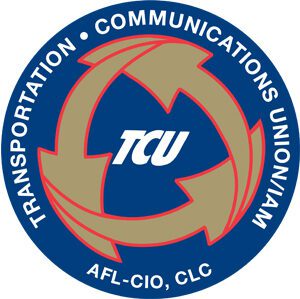The House and Senate both passed extensions of unemployment insurance and the homebuyer’s tax credit. The unemployment extension would allow workers in all 50 states to draw 14 weeks of federal unemployment benefits after exhausting their regular 26 weeks of state compensation. It would provide an additional six weeks in states with unemployment rates of at least 8.5 percent. Special language is written into the bill to include railroad workers.
While Democrats consider other ways to boost our economy and create jobs, passing this legislation will provide immediate assistance to millions of Americans.
With Congress passing this bill so overwhelmingly, President Obama is expected to sign the legislation soon.
Summary of the legislation:
Emergency Unemployment Benefits Extension
This proposal would extend unemployment insurance by up to 14 additional weeks for jobless workers and extend benefits for six additional weeks for workers in states with unemployment levels over 8.5 percent.
Additionally, the proposal would:
• Specify that railroad workers who face expiring unemployment benefits will be eligible for the extension of benefits.
• Ensure that the additional $25 per week in unemployment insurance benefits provided by the Recovery Act do not count against a family’s eligibility for the Supplemental Nutritional Assistance Program, formerly known as food stamps;
• Update the Unemployment Insurance Modernization provisions in the Recovery Act to provide that victims of sexual assault who have left their jobs have a “compelling family reason” for benefits; and
• Allow states to temporarily pay tier three benefits before tier two benefits in order to avoid payment delay and to ease implementation of Emergency Unemployment Compensation benefits. Tier two and tier three benefits must be exhausted before an individual may qualify for tier four benefits.
Business and Homebuyer Assistance
Homebuyer credit – Under current law, the First-Time Homebuyer Tax Credit is a refundable tax credit available to an individual buying a principal residence for the first time. The credit phases out for individuals with income between $75,000 and $95,000 and for joint filers with income between $150,000 and $170,000. For purchases made on or after January 1, 2009 and before December 1, 2009 the tax credit is equal to the lesser of $8,000 or 10 percent of the purchase price of the residence. Individuals must repay the credit only if the principal residence is disposed of within 36 months of purchase. For purchases made on or after April 9, 2008 and before January 1, 2009, the tax credit is equal to the lesser of $7,500 or 10 percent of the purchase price of the residence. Individuals purchasing homes in 2008 are also required to repay the credit over 15 years. This proposal would extend the availability of a homebuyer credit to homes under a binding contract before April 30, 2010, allowing 60 days to close.
The other modifications are as follows:
1) The credit is phased out for individuals with income above $125,000 and for joint filers with income about $225,000.
2) An $8,000 credit is available to all first-time homebuyers.
3) A $6,500 credit is available to homebuyers who have been in their current residence for the last five years or more.
4) The credit is available only for the purchase of principal residences with a purchase price of $800,000 or less.
5) The proposal incorporates Senator McCaskill’s proposal in the Service Members Home Ownership Tax Act of 2009 to eliminate the recapture requirement for military personnel, including members of the Foreign Service and intelligence community, forced to sell as a result of an official extended duty of service and to allow military personnel serving outside the United States for at least 90 days in 2009 or 2010 one additional year to qualify for the credit.
6) The proposal includes anti-fraud language.
7) The proposal also includes math error authority for the IRS.
Click here to view House Majority Leader Steny Hoyer statement.

